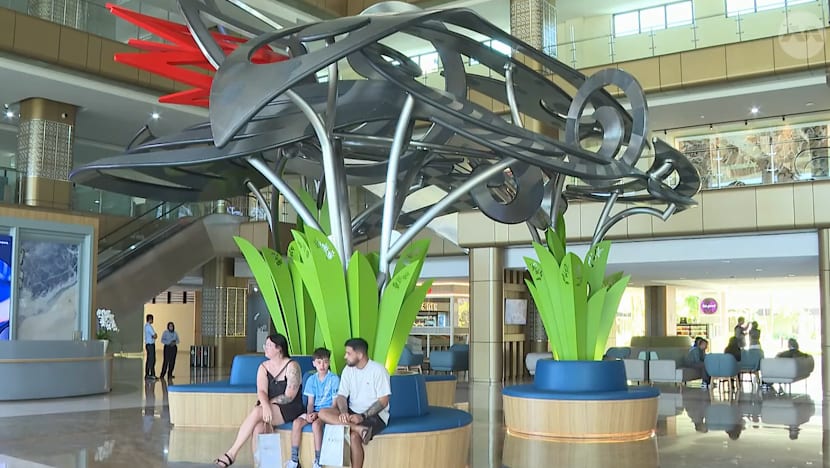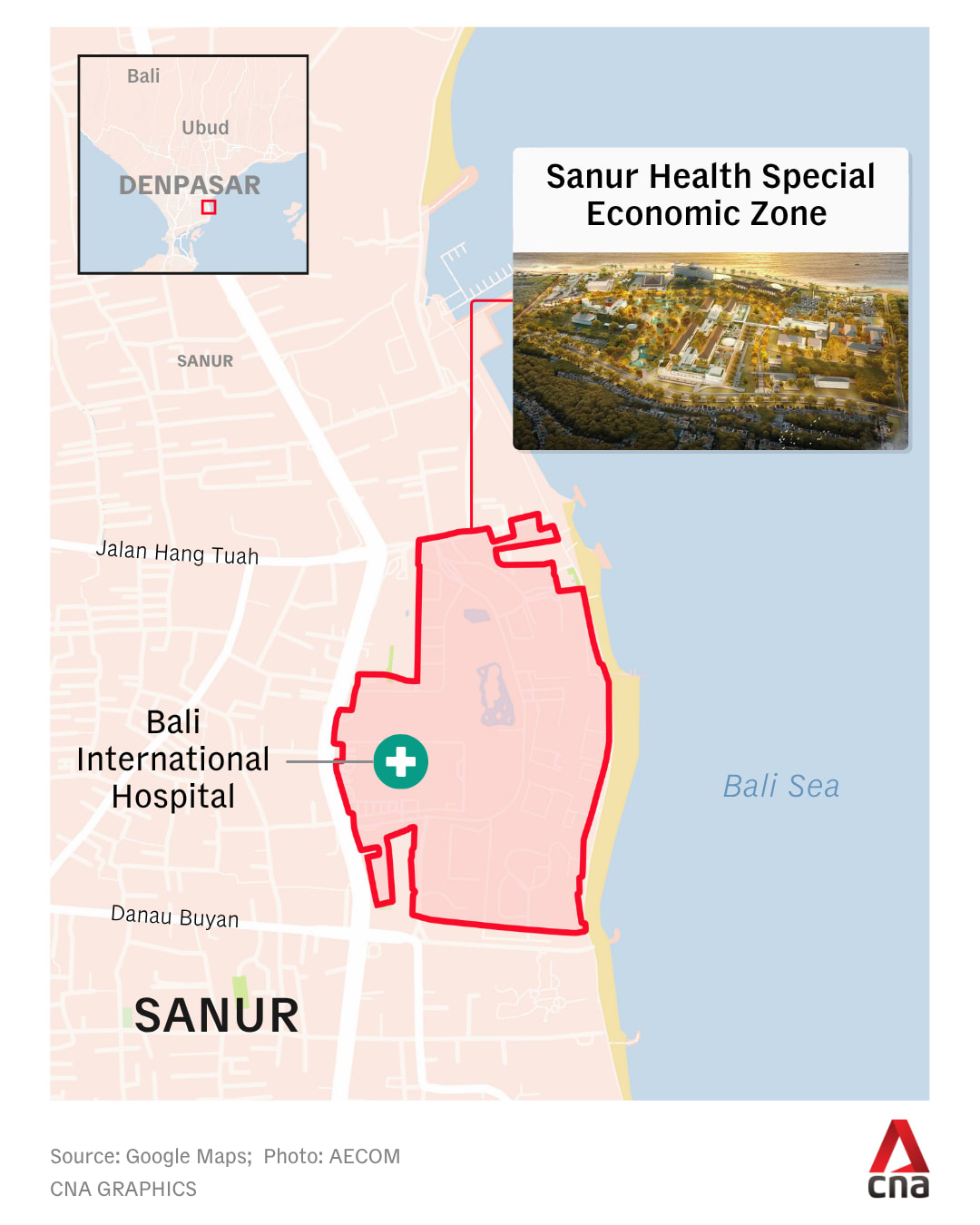Where healthcare meets hospitality: Can Bali become Asia’s next medical tourism hotspot?
The Sanur Health Special Economic Zone is expected to create 12,000 jobs over the next three years.

A lobby at Bali International Hospital, located in the Sanur Health Special Economic Zone.

This audio is generated by an AI tool.
BALI: Indonesia is stepping up efforts to strengthen its medical tourism industry and reduce the number of citizens seeking treatment abroad.
At the heart of this push is the Sanur Health Special Economic Zone (SEZ), a new development located on Bali’s southeastern coast.
The area spans more than 41ha and is designed to become Indonesia’s first integrated health tourism destination.
About 2 million Indonesians travel overseas every year for medical care, with 74 per cent choosing Singapore and Malaysia. This outbound spending amounts to more than 150 trillion rupiah (US$9 billion) annually.
Jakarta hopes the Sanur SEZ will help reduce that outflow by offering world-class care at home.
The centrepiece of the development is the Bali International Hospital, the only hospital within the SEZ.
Covering more than 67,000sqm, the hospital provides specialist services in cardiology, oncology, neurology, gastroenterology, hepatology and orthopaedics – strengthened through partnerships with institutions from Australia, Japan and Singapore.

International specialists from around the world – including doctors, nurses and allied healthcare professionals – can now practise with licences in Indonesia, but they are restricted to the Sanur SEZ for now.
“Many of the outbound Indonesian medical health seekers, they leave the country precisely to access professionals like this,” noted Noel Yeo, chief of commercial and operations at Bali International Hospital.
ADDRESSING SHORTAGE OF SPECIALISTS
With Indonesia facing a shortage of about 70,000 specialist doctors, authorities hope the SEZ can also help to fill the gap and lure highly skilled members of the diaspora back home.
“While Indonesian doctors may be no less skilled, the country’s healthcare system probably needs improvement,” said Rio Marnoto, a vascular surgeon at Bali International Hospital.
The German-trained Indonesian doctor said he always had a desire to return to his home country, noting that it used to be difficult for those like him who trained abroad to practise in Indonesia.
“Perhaps we might be able to take a shortcut by bringing in people from abroad, especially those who understand Indonesia, to help us adapt international systems.”
The SEZ, a national strategic project, aims to attract both local and foreign patients by combining healthcare, wellness and hospitality services in one area.
It will feature facilities for stem cell therapy, aesthetic surgery, fertility treatments, ophthalmology, and geriatrics, alongside premium accommodations and an ethnobotanical garden.
There will also be two landmark hotels: the historic Bali Beach Hotel, the island’s first five-star property opened in 1966, and the Meru Sanur Hotel, a five-star resort.
Christine Hutabarat, CEO of Indonesia’s state-owned aviation and tourism holding company InJourney's subsidiary, InJourney Hospitality, which manages the SEZ, said partners are carefully chosen to ensure global standards.
She added that the company spent about three years reviewing and selecting from more than 300 clinics, meeting with doctors and assessing their capabilities.
“We believe that (bringing) the international top-notch brand is the answer,” she said.
GROWING REGIONAL MARKET
Southeast Asia’s medical tourism industry is valued at more than US$48 billion and is expected to grow by over 12 per cent annually.
Indonesia is looking to boost its gross domestic product (GDP) with a share of that growth.
InJourney CEO Maya Watono said the goal is to recoup the 150 trillion rupiah lost each year to Indonesians seeking treatment abroad – and even earn more by attracting foreign patients.
“Because we’re opening things in stages, we’re hoping, in the first year, to curb maybe one-third of that – 50 trillion (rupiah),” he said.
“If we look at three years, maybe we’ll go into about 200 trillion (rupiah), because we managed to curb it but then we’ll also bring in (patients) from abroad.”
According to project officials, Indonesians currently make up 40 per cent of Bali International Hospital’s registered patients, with the remaining 60 per cent comprising foreigners of more than 30 nationalities.
The SEZ is also expected to create 12,000 jobs over the next three years by hiring local workers and expanding medical and hospitality services.
Authorities see the development as a cornerstone of Indonesia’s long-term healthcare strategy – and a test of the country’s ability to offer world-class medical services.


















